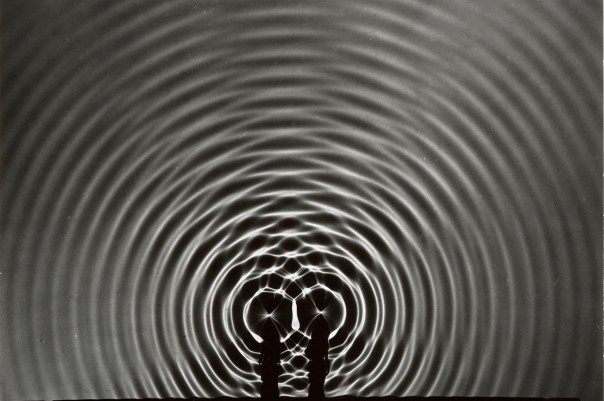I’m not sure I’ve ever been quite this scattered in my curriculum or quite this solid in my own philosophy. Mostly I am jumping around trying to connect my philosophy of design with like-minded thinkers and practitioners. I want to try to organize the leads and strands, so I can keep track of it (or maybe just note my intentions, in case I later want to map out what turned out to go somewhere, versus a dead-end or a road not taken).
Most material-turn thinkers seem to find the metaphysics of A. N. Whitehead to be compatible and supportive of their work, so I definitely want to dig further into his thinking, most likely continuing to use Stenger’s Thinking With Whitehead as a guide.
Stenger and many others refer to the work of Deleuze and Guattari, so when I spotted an episode on them in the completely fantastic podcast “Philosophize This!” (so fantastic, in fact, that I joined Patreon, just to help fund it) I decided to listen. So far, I’m finding their last collaboration What Is Philosophy? to be very close to my views on what philosophy is/ought to be and do. I anticipate finishing this one, before tackling Stengers.
I’m also bumping into Gregory Bateson quite a bit these days. I ran into a reference to him in The Design Philosophy Reader (would also like to finish this this summer, or at least this year, since I’ve decided to root my own philosophy in the bizarre and intensely uncomfortable experiences that permeate a life of strategic human-centered design) — and again in an article on futures literacy, which I plan to finish reading this week.
Last weekend I finished an intriguing paper Latour wrote (translated by Graham Harman — more on him later) on Souriau, which convinced me that I will have to read The Different Modes of Existence soon, which might help me actually understand Latour’s own magnum opus An Inquiry into Modes of Existence.
Regarding Harman, I’ll probably make myself read his introduction to Object-Oriented Ontology, if only to eliminate OOO as a possible area of study. OOO is the one material-turn philosophy that seems almost preposterously wrong-headed, and it is also the hottest philosophical movement in the world right now, embraced by many brilliant people — so what am I supposed to do with that? As I’ve said before, philosophy is a schooling in humiliation, and my reaction to OOO — especially its self-evident foolishness — shows signs that I am failing to understand it. I continue to cautiously reject OOO until I can pin down precisely where it is failing, or until I convert and realize it was right all along. (Until then, however, I believe OOO’s entire trajectory is determined by a fundamental moral confusion endemic to the progressivist regions of today’s popular philosophy, namely, a passionate belief in selfless altruism. I deny not only that it is possible, but that selfless altruism is even a good unattainable ideal. I think the notion of selfless altruism is a result of a conceptual failure and pursuit of the ideal has disastrous moral consequences: it produces an incapacity to develop real relationships with real others, an incapacity to find genuine value in one’s life, and most of all an incurable moral irritability saturated with ressentiment. OOO wants us to try to leave our persons behind in order imagine our(not)selves into the undetectedly withdrawn life of noumena, like inhabitants of Calvino’s imaginary city of Baucis.
Vastly better, in my opinion, generally but especially for the purposes of human-centered design, is postphenomenology. I’ve read part of Robert Rosenberger’s collection Postphenomenological Investigations (Langsdorf’s essay is what reignited my interest in Whitehead as the material-turn metaphysician of choice) and I definitely need to finish it. I’ve already read Verbeek’s What Things Do. I’ll likely read Moralizing Technology next, and then start reading the works of Don Idhe (the founder of postphenomenology) from latest to when he turned his attention to human-technology relationships.
And, speaking of Verbeek — His attacks on Jaspers’s views on technology got me interested in Jaspers work, and strangely, led me into an existential detour earlier this year. I still intend to read (at least) his three-volume Philosophy (which I got scanned and OCRed, so I can read it on my iPad.) Also, Jaspers concept of the Axial Age, has intersected with an obsessive intuition I’m harboring that “we have come to the end of this kind of vision of Heaven”, and might now be starting to move beyond the 2,500-year-old understanding of religion which is so predominant and ubiquitous that we find it difficult to imagine that religion could be anything else. Not to propagate posts in this post-post moment, but I am interested in what post-Axial religious praxis can look like (which would include material-turn ontology set in a panentheistic metaphysics) and I’ve even managed to find a book on it, which, I, alas, also must read, and which threatens to barge in at the front of my reading queue. And of course there’s a whole world of Process Theology out there, based on Whitehead’s thought, which might, for all I know, already be exactly what I’m looking for. I’ve read one book on Jewish process theology, which did not connect with me much, but I don’t think it exhausted the possibilities.
I have a lot of reading ahead of me. I’d love to turn the work into a publicly-acknowledged post-grad academic degree of some kind, but what department in what university would ever award it?

